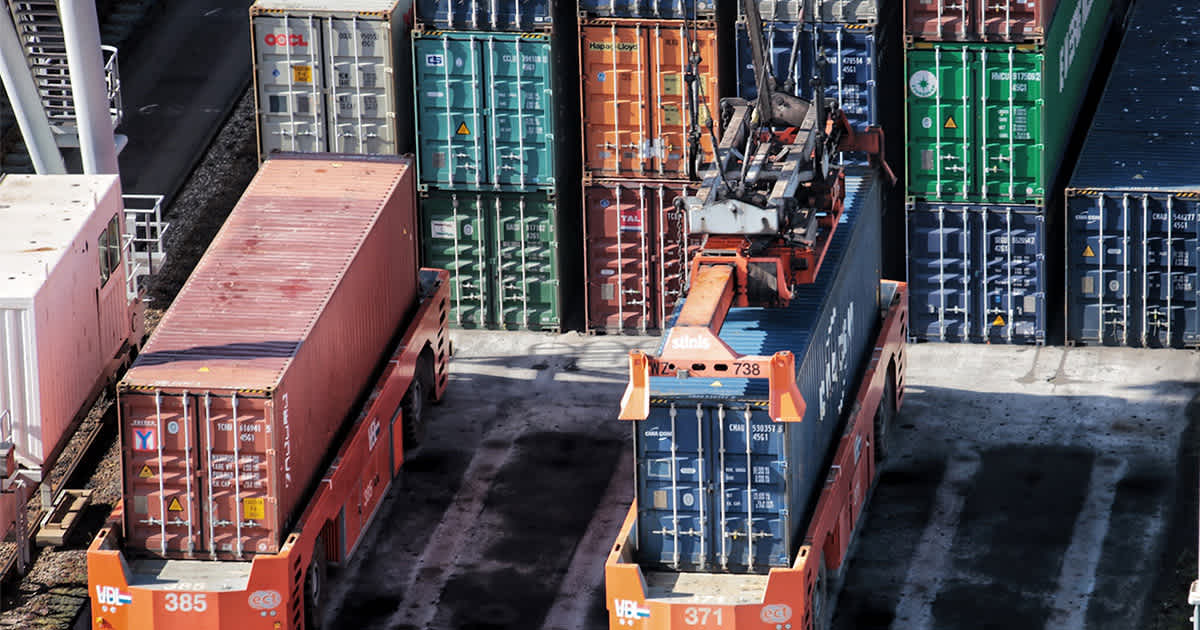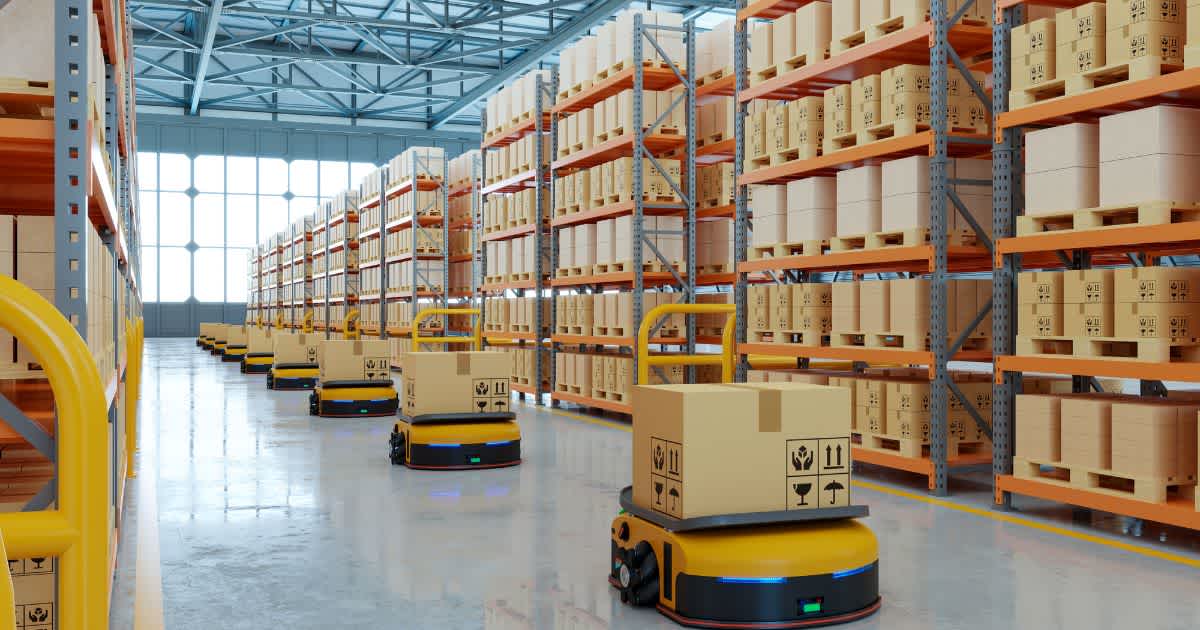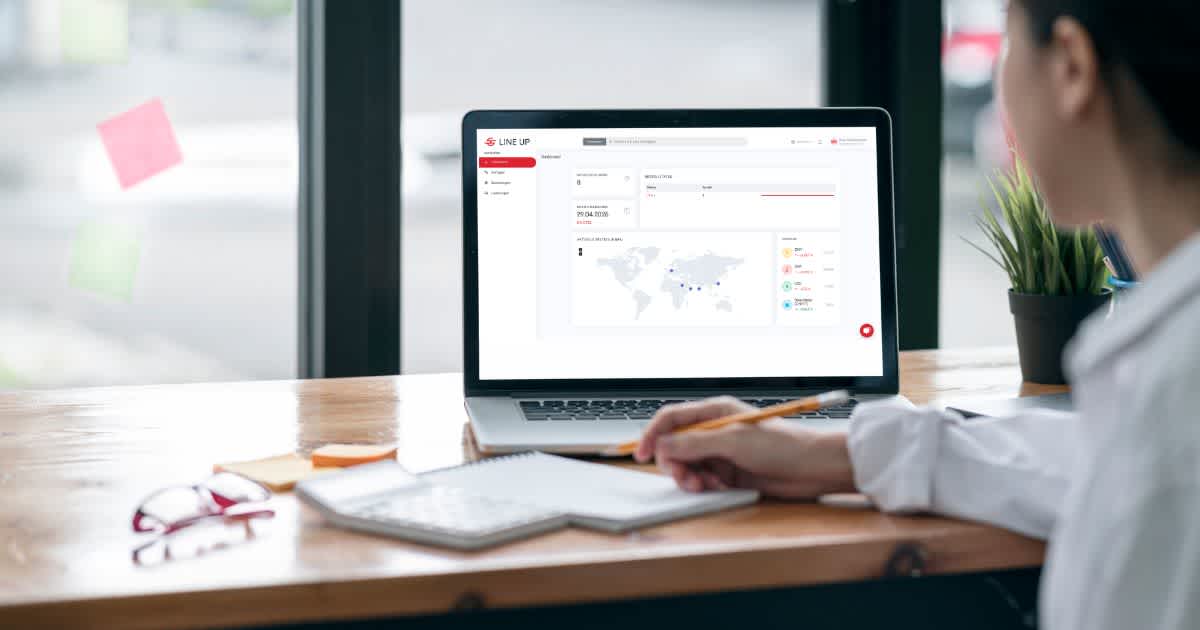Digitalization of the supply chain
Reading Time: 6 min.

How a comprehensive view of data makes global supply chains more resilient.
Transparency is a key factor for resilient supply chains. Digitisation of the supply chain, in particular, provides a comprehensive overview that makes it easier to overcome challenges. What does it all come down to? And what role can supply chain dashboards play in this?
According to the Supply Chain Management Trend Report of the Institute for Operations Research and Management (INFORM), accelerated digitalisation is making supply chains more crisis-proof. At least that is the opinion of the 190 experts and managers from the logistics and supply chain management sector surveyed.
93 % % consider digitalisation of the supply chain crucial for crisis management
86 % rated the importance of digitalised SCM as high (34%) or very high (52%)
54 % say the pandemic has caused an acceleration of digitization efforts
81 % have started or are currently planning digitisation projects in inventory management and warehouse management
Transparency in global supply chain management
Transparency in the procurement process is the key to efficient supply chain management. The increasing need for comprehensive visibility at every level of supply chain management means that every process within the chain, from procurement to delivery, must be transparent. Knowing where the components and products you depend on are located at all times significantly minimizes risks such as bottlenecks, breakdowns or delays in the process. This enables a more precise assessment of the risk potential and the development of suitable countermeasures. A transparent procurement process is therefore essential to ensure the efficiency and reliability of the entire supply chain and will become increasingly important in the future.
However, the required transparency does not only refer to the transparent supply chain, but also to the sustainability efforts of the suppliers themselves in the course of complying with ESG criteria (Environmental, Social and Governance).
Procurement specialist Line Up is aware of this and can provide answers to both requirements with its Supply Chain Dashboard. Here, users have an overview of all open and past orders, along with the associated documents, delivery status and current position. For the sustainability aspect, another function is planned in the near future that will output the total CO2 emissions along the supply chain and thus offer a direct compensation option.
Managing the rising flood of data with dashboards
Logistics has always been a strongly process- and data-driven industry. No wonder, because selectively processed real-time data is what makes it possible to control the logistics process and react to disruptions at short notice. In addition, the analysis of big data helps to make better decisions in the medium and long term and to optimise one's own supply chains.
However, the mere collection of data does not bring a competitive advantage. Rather, the question must be answered as to how the data can be analyzed and used in real time for process optimisation. Example Line Up Dashboard: Here, the data is used, among other things, to track ships as they pass through oceans and remote waterways. Specifically, location data is determined in real time via satellite data as well ground stations via AIS Data (Automated Identification System). Together with other static information, they can then be used.
Why global sourcing needs consulting
As digitalisation increases, buyers are looking for new ways to work with their suppliers in a more agile and flexible way. The challenges that companies have to face differ depending on the individual risks.
As far as global sourcing in Asia, and China in particular, is concerned, Far Eastern factories continue to offer great advantages: The prices are in the best relation to the performance, the manufacturing quality is high and even in current times China is much more crisis-resistant and independent of energy and raw material resources than other nations. Alone when it comes to processes such as handling, transport logistics and import processing or even payment conditions, the need for advice is still high for many companies. And it is precisely here that procurement specialists like Line Up can help to increase or at least maintain production reliability.
Keep an eye on the entire workflow: Line Up takes care of the entire production and procurement processes and accompanies you on the way to digitalising your supply chain.
Newsletter Registration
Sign up now for our free Line Up newsletter and stay up to date.





